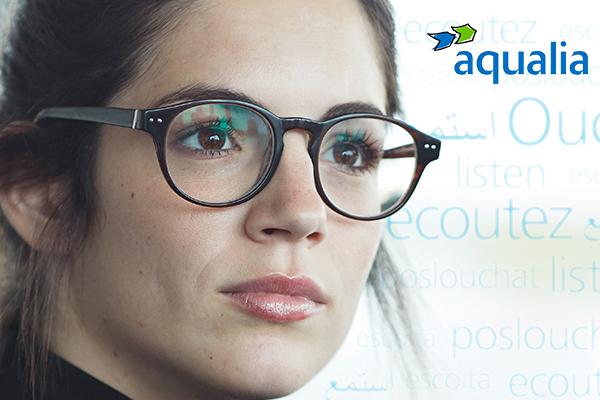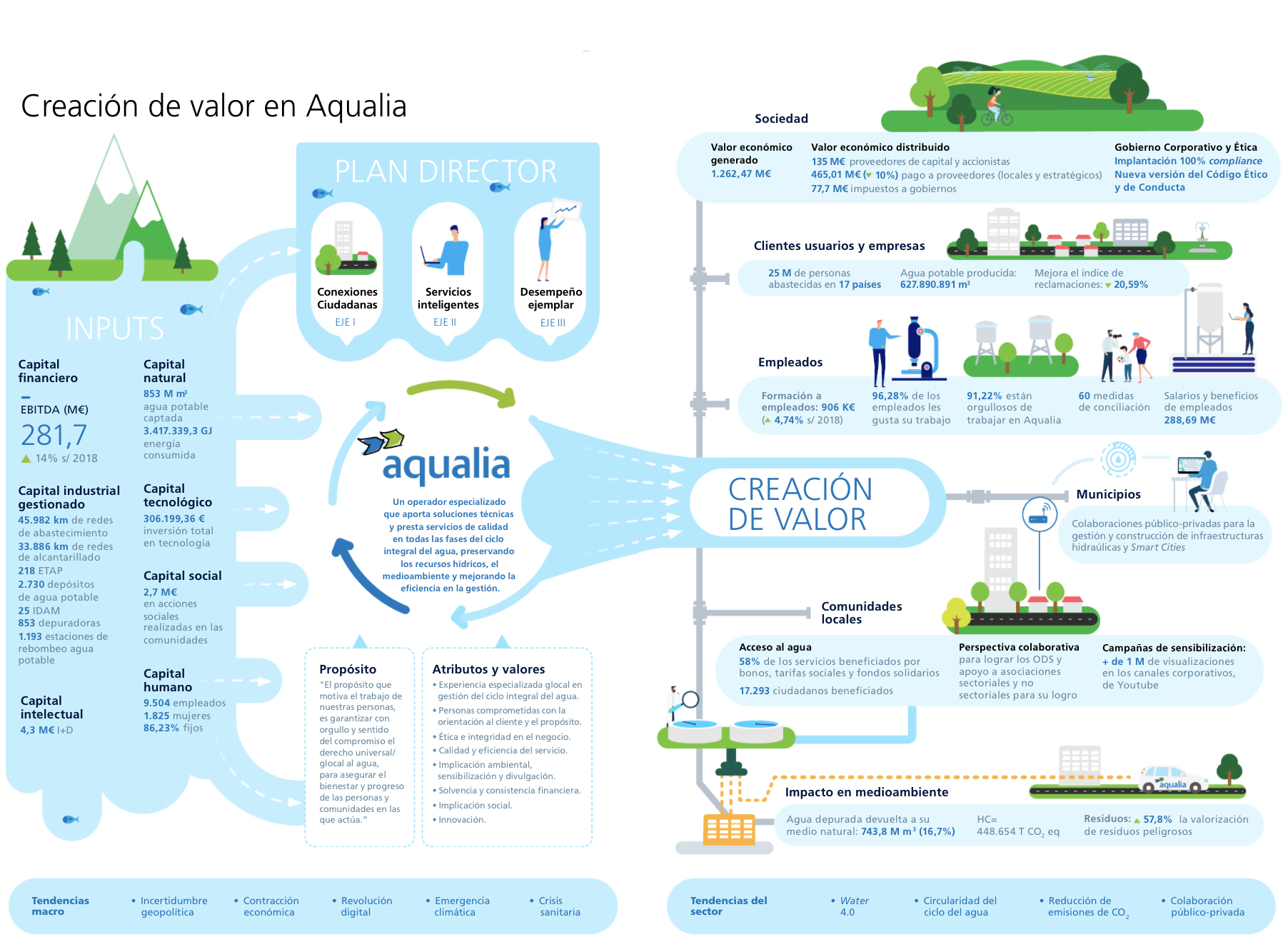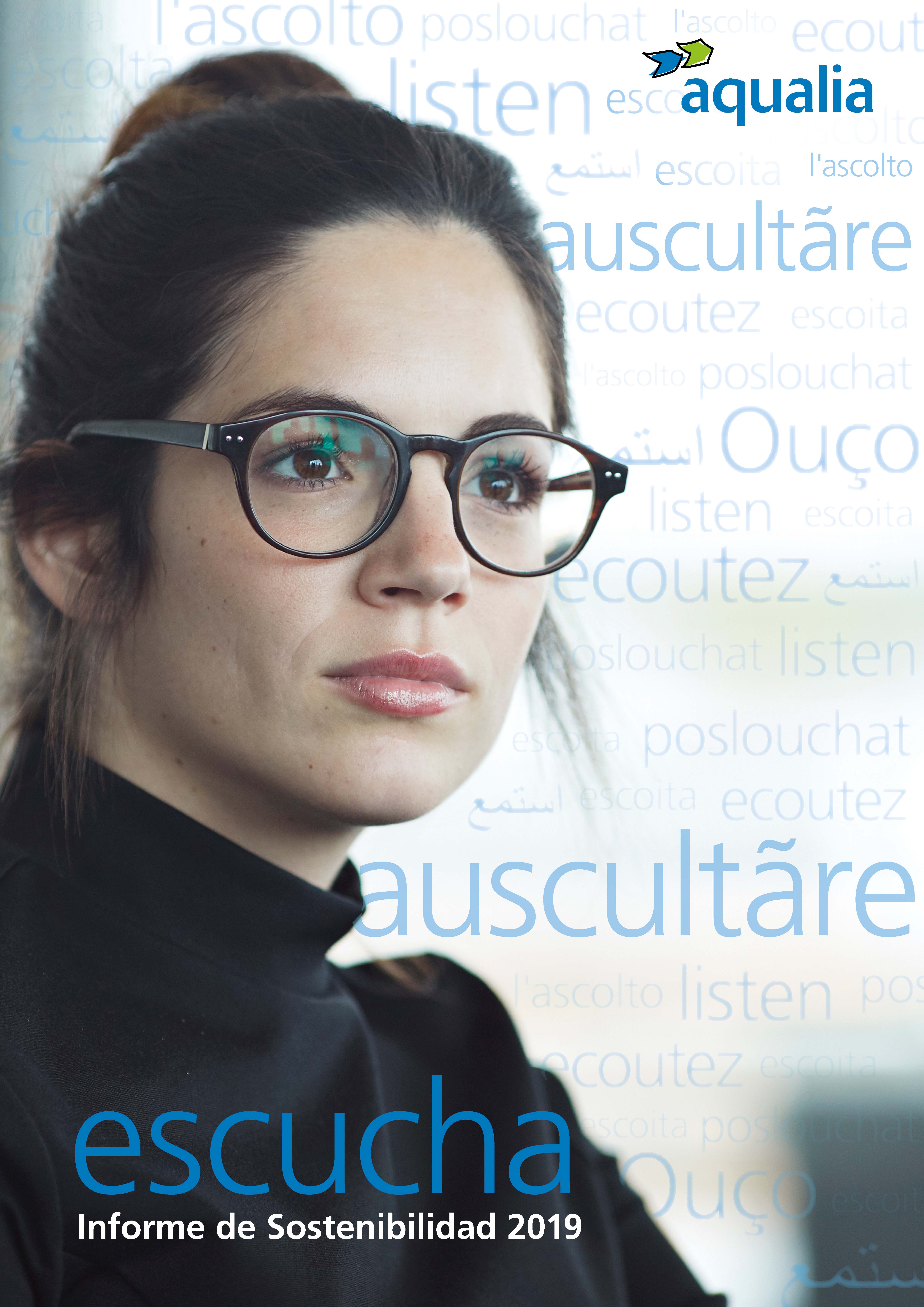
The climate emergency, water scarcity and inequalities in access to water, the main lines of action of Aqualia's 2019 Sustainability Report
The climate emergency, water scarcity and inequalities in access to water, the main lines of action of Aqualia's 2019 Sustainability Report
- After actively listening to more than 18,000 people in its field of activity, Aqualia publishes its Sustainability Report, which includes and integrates the main concerns of its stakeholders. It also points out that "Moving towards universal and equitable access to water requires ethical management based on human values".
- The report applies, for the first time, the methodology proposed by the International Integrated Reporting Council (IIRC) which reports on the capital with which the organisation creates value for society. The Report also provides metrics on the company's contribution to the Sustainable Development Goals (SDG).
- In addition to having reduced its carbon footprint by 13.8%, Aqualia is working to transform the WWTPs into biofactories and to accelerate digital solutions thanks to platforms for the global digitalisation of the end-to-end water cycle such as Aqualia LIVE, which considerably improves the efficient use of water resources
- Aqualia is part of the StepByWater Alliance, recently launched by the Spanish government, companies from all sectors and public and private institutions, with the aim of contributing to better water management

Aqualia has just presented its 2019 Sustainability Report, which was drawn up after a laborious materiality analysis and an in-depth process of active listening to more than 18,000 people from among its stakeholders, which allowed the company to learn about and measure the most relevant impacts of its activity.
Under the title #Escucha, the document integrates Aqualia's performance in the face of the climate emergency, water shortages and inequalities in access to water, the three fields of action that encompass the main concerns and expectations of all the publics involved in its business operations, to which Aqualia responds from a commitment to the circularity of water and from a collaborative perspective. It should be noted that the research ended when only the social impact of COVID-19 was intuited; however, issues such as water quality, safety and health were already considered very relevant material issues.
The same questions appear in the interview with Felix Parra, Aqualia's CEO, with which he opens the Report. "We have long understood the interdependence between environmental balance and social welfare. If we apply our capacity for innovation and transformation to end-to-end water management, we will have a direct impact on people's lives”, says the manager, who reviews the company's challenges in relation to the 20-30 Agenda.
After having identified and prioritized in 2018 the Sustainable Development Objectives to which the company is committed, this year the report goes a step further, providing metrics on the contribution to these objectives, based on a triple bottom line and «glocal» approach, a term that refers to the interrelationship of global aspects and local impacts.
In addition, for the first time, Aqualia has applied the methodology proposed by the International Integrated Reporting Council (IIRC), global coalition of regulators, investors, companies, standard-setters, accounting professionals and NGOs, whose aim is to evolve corporate reporting towards value creation: improving the information available to providers of financial capital, promoting a focus on sustainability, through company accountability based on capital –financial, intellectual, human, natural, social, etc.– and supporting integrated thinking for decision making that focuses on value creation in the short, medium and long term.
Among the company's milestones reached this last year, its efforts to promote a fair ecological transition that reduces water and energy consumption stand out. In addition to having reduced its carbon footprint by 13.8%, Aqualia is working to transform the WWTPs into biofactories and to accelerate digital solutions thanks to platforms for the global digitalisation of the end-to-end water cycle such as Aqualia LIVE, which considerably improves the efficient use of water resources.
With more than 25 million people served worldwide, the purpose with which Aqualia started its business activity remains unchanged: to guarantee the universal right to water in order to ensure the well-being and progress of the people and communities in which we operate. For this reason, the company has worked with local councils to deploy bonuses, social tariffs and solidarity funds in most of the municipalities it serves.
Moving towards universal and equitable access to water requires ethical management based on human values. Therefore, Aqualia contributes to sustainable growth by providing an economic value generated of 1,262.47 million and an economic value distributed of 1,147.627 million.
Through its 2019 Sustainability Report, Aqualia aims to read the present in order to transform the future, and to lead responsible and efficient water management, "a challenge that requires public-private partnerships", says Aqualia's CEO.
Aqualia has redoubled its efforts in communication and, together with the Report, published in Spanish, Portuguese and English, has launched a video-summary with the main milestones contained in the document. Everything can be downloaded from the website www.aqualia.com.






